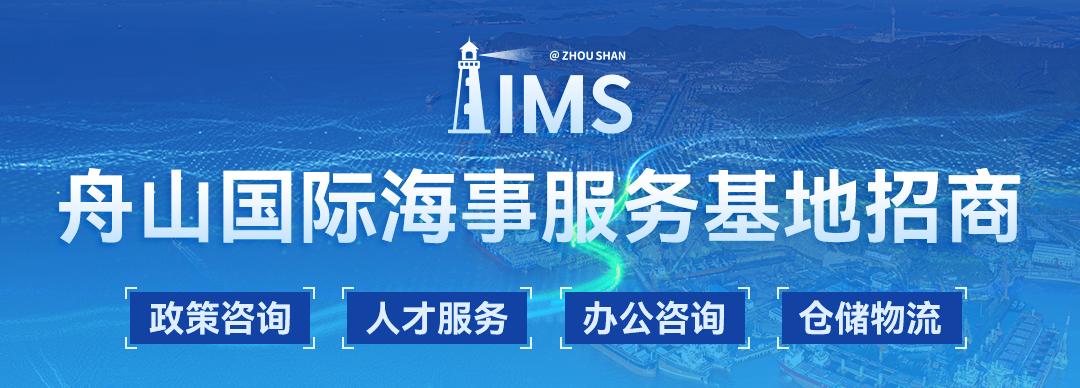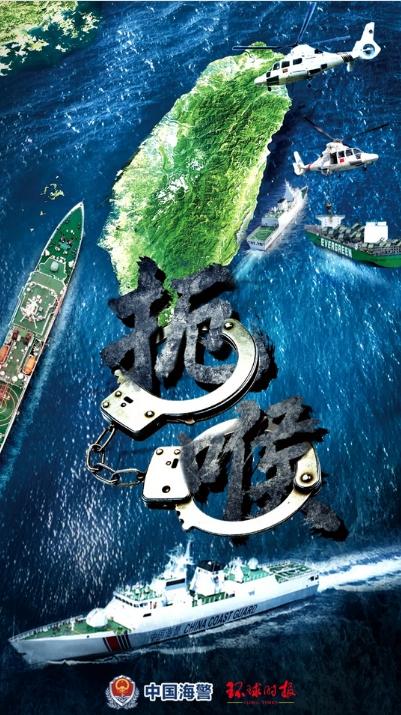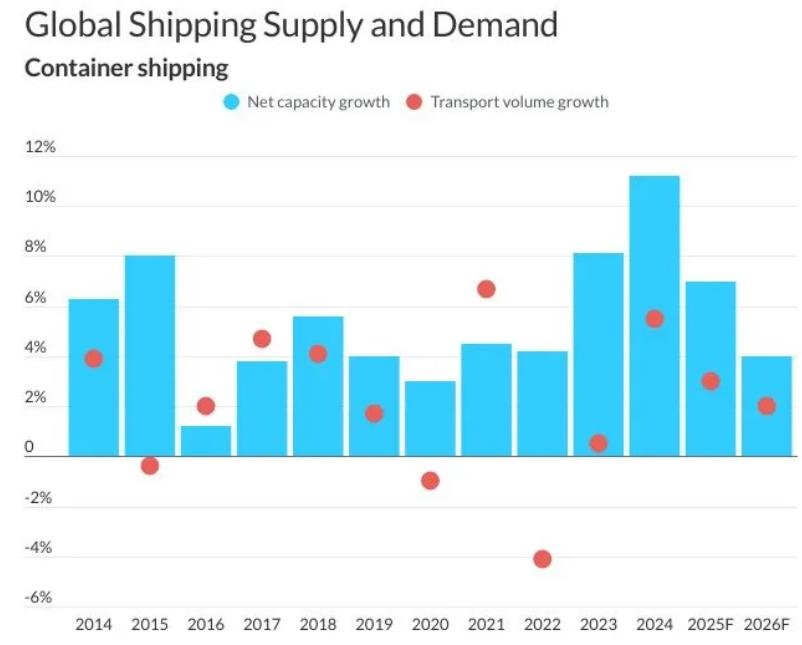
4.4 STATUTORY CONSIDERATIONS 4.4 法定的约因/对价
4.4.1 Unfair terms in ship sale contracts 4.4.1 船舶买卖合同中不公平条款
Generally speaking, under English law, parties are free to contract on whatever terms they choose and the courts will not interfere simply because one of the parties has made a bad bargain. There are, however, certain legislated exceptions to this general rule; the main exceptions are briefly described in sections 4.3.9 to 4.3.11 below.
一般来说,根据英国法律,双方当事人可以自由选择任何条款订立合同,法院不会仅仅因为其中一方作出了赔本买卖就轻易干预。然而,一般性某些法定规则还有某些例外情况;在下文第4.4.2-4.4.5节(原文有误),简要介绍主要的除外条款。
4.4.2 Unfair Contract Terms Act 1977 4.4.2 《1977年不公平合同条款法》
Where Unfair Contract Terms Act (“UCTA”) 1977 applies to contracts, it may invalidate certain contractual provisions which purport to exclude or restrict liability. If UCTA does apply, the manner of its application will differ depending on whether the contract is:
- business-to-business contract not on standard terms;
- business-to-business contract on standard terms; and
- a contract with a consumer.
(1). 企业对企业之间的非标准格式条款合同;
(2). 企业对企业之间标准格式条款合同;
(3). 同消费者签订的合同。
In ordinary business-to-business contracts (where there is no consumer contact) which are not based on standard terms, the application of UCTA will be limited as follows:
- no exclusion of liability for death or personal injury will be permitted;
- the exclusion of any other liability for negligence (including any breach of a duty to use reasonable skill and care) will be permitted only insofar as the exclusion is reasonable;
- no exclusion of any liability for breach of the implied term as to title in section 12 of the Sale of Goods Act (“SGA”) will be permitted;
- the exclusion of the implied terms in sections 13–15 of the SGA, or of other terms applicable on a transfer of possession, will be permitted only insofar as the exclusions are reasonable; and
- the exclusion or restriction of any liability for misrepresentation will be permitted only insofar as it is reasonable (inserted by UCTA in section 3 of the Misrepresentation Act 1967 (“MRA”)) — this will probably apply even in the case of international supply contracts.
(1). 不允许排除死亡或人身伤害的责任;
(2). 其他任何过失责任(包括任何违反运用合理的技能和小心谨慎的义务)的除外,只有是属于合理的范畴才可被允许免除;
(3). 不允许排除违反《货物买卖-SGA》第12条,关于货物主权的默示条款的任何法律责任;
(4). 排除《SGA》第13-15条默示条款或适用于货物占有权转移的其他条款,只有是属于合理的范畴才可被允许免除;
(5). 对任何误述责任的排除或限制,只在合理的范畴才可被允许免除(在《1976年误述法-MRA》第3条插入UCTA)——即使是在国际供应合同的情况下,也可能适用。
- Where contracts are based on standard terms, the position is the same as for other business-to-business contracts except that all exclusions or limitations of liability in contract are subject to the reasonableness test, as are provisions which entitle the party proposing the standard terms to render a contractual performance substantially different from that expected, or no performance at all. The concept of standard terms has been widely interpreted.
凡是基于标准条款的合同,其法律地位等同于商业间的合同,除非合同中所有免责或限制条款满足合理性的测试原则,因为,这些规定赋予提议标准条款的一方当事人以权力,严重偏离原来预期的履行合同的目的,或者根本不履行合同。标准合同条款的概念业已是经受过广泛的解读。[1]
In contracts involving consumers, in addition to the restrictions on standard terms referred to in the paragraph above, no exclusion of the implied terms in sections 13– 15 of the SGA will be permitted.
在涉及消费者的合同中,除了上段提到的标准条款的限制,不允许排除《SGA》第13 -15条的默示条款。
However, with one possible exception (as discussed above), none of the limits imposed by UCTA on contract terms which exclude or restrict liability applies to international supply contracts. Exclusion and limitation clauses in such contracts can therefore be more exclusionary than in other contracts. In addition, most of UCTA's protective provisions (sections 2–7 and 16–21) are inapplicable to contracts which are governed by the law of a part of the United Kingdom solely by reason of the parties' choice and which would, but for that choice, have been governed by the law of a country outside the United Kingdom. In practice, therefore, UCTA is likely to be of limited application to second-hand ship sale contracts since the majority of such contracts will fall into either or both of the two categories just described.
然而,有一种可能的例外情况(如以上所论),《UCTA》对合同中除外或限制责任的条款强制设置的限制,没有一个适用于国际供应合同。[2] 因此,在此类合同中,除外和限制条款可能比其他合同更具有排他性。此外,大多数《UCTA》的保护性条款(第2–7条和第16–21条)并不适用于,仅仅因为合同双方所选择的英国法律,其中部分法规管辖的合同,而且,要不是这种选择,该合同本应该受到英国以外的国家的法律管辖。因此,在实践中,对于二手船买卖合同,《UCTA》很可能只是有限地适用,,因为大部分此类合同是属于上文刚刚论述的两类合同中的一种或两种。
4.4.3 The Misrepresentation Act 1967 4.4.3《1967年误述法》
Section 3 of the MRA, as amended, applies a requirement of reasonableness to any contractual provision which purports to exclude or restrict liability for misrepresentation or any remedy available in respect of a misrepresentation.
经修订的《MRA》第3条,适用于,一个旨在免除或限制误述的责任或因误述而产生的任何救济的任何合同条款的合理性要求。[3]
It should be noted that international supply contracts are probably not excluded from the operation of section 3 of the MRA and, accordingly, the MRA could apply to contracts to which UCTA does not apply.
应当值得注意的是,国际供应合同,很可能不会排除《MRA》第3条的应用,而且,相应地,《MRA》可以适用于《UCTA》不适用的合同。
4.4.4 Legislation relating to contracts with consumers 4.4.4 涉及消费者合同的法律
If one (or both) of the parties to second-hand ship sale contracts are consumers, the SGA, the MRA and UCTA may apply. In addition the following additional legislation may be relevant:
- The Unfair Terms in Consumer Regulations 1999 (the “Unfair Terms Regulations”);
- The Consumer Transactions (Restrictions on Statements) Order 1976 (the “1976 Order”);
- The Consumer Protection Act 1987 (“CPA”); and
- The General Product Safety Regulations 2005 (“GPS Regulations”).
(1). 《1999年不公平合同条款消费者管理条例》(不公平条款之管理条例);
(2). 《1976年消费者交易规则(陈述声明的限制)》(1976规则);
(3). 《1987年消费者保护法》(CPA);
(4). 《2005年一般产品安全管理条例》(GPS管理条例)。
The Unfair Terms Regulations (which operate independently of UCTA) may also invalidate contractual provisions which are regarded as “unfair”. They only apply however to contracts for the sale or supply of goods or services between a seller or supplier and a consumer (defined as a “natural person who … is acting for a purpose which is outside his business”). In practice, therefore, the Unfair Terms Regulations are also likely to be of limited application to the sale of second-hand merchant ships. However, they might be applicable to the sale of, say, new and second-hand yachts.
《不公平条款之管理条例》(其实施独立于《UCTA》)也可能会使被认为‘不公平’的合同条款变得无效。然而,它们仅仅适用于合同的卖方或供应商与消费者(被定义为‘非为商业目的行事的一名自然人’)之间关于货物销售或供应或服务的合同。在实践中,因此,《不公平条款之管理条例》也可能限制适用于二手商船的销售。然而,它们可能适用于,比如说,新的和二手游艇的销售。
Where the Unfair Terms Regulations do apply, the courts and other authorised bodies have power to investigate the use of any contract terms (not just exclusion provisions) to ensure that they are written in “plain, intelligible language” and that they are not unfair. A term which is not written in “plain, intelligible language” will be interpreted against the party proposing it and will be subject to the test of fairness. A term which is found to be unfair will not be binding on the consumer.
如果适用《不公平条款之管理条例》,法院和其他权力机构有权去调查任何合约条款的使用(不只是除外条款),以确保它们都是以‘简单,易懂的语言’拟订的以及它们不是不公平的。一个不是以‘简单,易懂的语言’书写的条款,将针对提议它的当事人做出严格解释,并符合公平的检验标准。一个被认为不公平的条款,将对消费者不具有约束力。
The Unfair Terms Regulations are concerned with the use of unfair terms but they are not intended to protect a buyer who has simply made a bad bargain (e.g. in relation to price). The expression “unfair term” means any term which, contrary to the requirement of good faith, causes a significant imbalance in the parties' rights and obligations under the contract to the detriment of the consumer. In this context, “good faith” has been held to refer to a requirement of “fair and open dealing”, and to “good standards of commercial morality and practice”. In Director General of Fair Trading v. First National Bank plc (2001), Lord Bingham held that “fairness” is concerned with the way in which the contract is negotiated and concluded (“procedural fairness”) and the fairness of the terms of the contract (“substantive fairness”) but not the use which a party may make of a term which is itself fair.
《不公平条款之管理条例》所关注的是使用不公平条款的情况,但其无意于保护一个只是做了赔本生意的买方(如涉及价格)。‘不公平条款’这一表达方式是指:违背诚实信用的规定,导致合同双方当事人的权利和义务严重失衡,并给消费者造成损失的任何条款。在此背景下,‘诚信/善意’已是参照‘公平和公开的交易’以及‘商业道德和行为的良好标准’的要求进行判决。在Director General of Fair Trading v. First National Bank plc (2001)案,[4] Bingham勋爵判定:‘公平’是涉及到合同谈判和缔结的方式(程序公正 ) 和合同条款的公正性(实质公平),但不是合同一方当事人可以利用一个本身就是公平的条款。
The 1976 Order may be applicable if a consumer transaction is involved or may subsequently be involved. Although the legislation contained in the CPA and the GPS Regulations is unlikely to be relevant to most second-hand ship sale contracts, it should be noted that a seller could become liable under such legislation in relation to the supply of defective products and that it is not possible to exclude or limit such liability by contractual provisions.
如果涉及或后来可能涉及消费者交易,《1976年消费者交易规则-order》可能会适用。虽然该法规已经包含在《1987年消费者保护法-CPA》和《2005年一般产品安全管理条例-GPS》,其规定不太可能与大多数二手船舶买卖合同相关,但应当注意的是,根据本法规,卖方将对有关供给有缺陷的产品承担责任,并且不可能通过合同条文来免除或限制法定的责任。
4.4.5 Sale of Goods Act 4.4.5 《商品销售法/货物买卖法》
The common law relating to the sale of goods was codified by the Sale of Goods Act 1893, which was itself re-enacted as the Sale of Goods Act 1979 (as amended, “SGA”). The legislation (as amended by the Sale and Supply of Goods and Services Act 1994, the Sale of Goods (Amendment) Act 1994 and the Sale of Goods (Amendment) Act 1995) applies to contracts for the sale and purchase of ships unless it is validly negatived or varied:
- by express agreement;
- by a course of dealing between the parties;
- by a usage (i.e. a custom of the trade) which binds both parties.
(1). 通过明示协议;
(2). 由双方交易过程;
(3). 通过约束双方的习惯做法(即贸易的惯例);
Parties should therefore bear in mind that, in addition to the express terms set out in the contract, other terms may be read into the contract. These terms (known as “implied terms”) may be read into the contract as a result of applicable legislation — such as the SGA — which applies to contracts for the sale of second-hand ships. For present purposes, it should be noted that there are three SGA implied terms which are likely to be of most relevance in relation to second-hand ship sale contracts, unless the parties agree to exclude their application.
l Under section 13(1) of the SGA, a contract may be subject to an implied condition that the ship will correspond with the description given to her in the contract.
l By implication, under section 14(2) of the SGA, the ship must be of “satisfactory quality” and this carries with it the requirement that the ship must meet the standard that a “reasonable person” would consider satisfactory having regard to the description and price and “all other relevant circumstances”. These other circumstances are not exhaustively listed and might include matters such as freedom from minor defects, durability and safety, and fitness for purpose.
l Under section 14(3) of the SGA, a “fitness for purpose” condition may be implied into the contract. However, this condition will only apply where a ship is being sold in the course of business and where the purpose for which the ship is being purchased has been made known to the seller, unless it is unreasonable for the buyer to rely on the seller's skill and judgement.
因此,合同双方应该牢记的是,除了在合同中列明这些明示条款,其他法定条款是可以被拟入合同之中。这些条款(称为默示条款)是由于立法适用的结果而被拟入合同之中——例如,《SGA》[7]——适用于二手船买卖合同。就目前而言,应当注意的是,《SGA》有三个默示条款很可能是与有关二手船舶买卖合同的关系最为密切,除非合同双方约定同意排除其适用。
(1). 根据《SGA》第13(1)条,可能适用于船舶买卖合同的默示条件是船舶应与合同所作的描述相符。
(2). 根据《SGA》第14(2)条,通过默示,船舶必须是达到‘令人满意的质量’,因此,这一规定具有的必要条件是:船舶必须满足相应的标准,即一个‘正当合理的人’对船舶有关描述和价格以及‘所有其他相关情况’感到满意。其他的情况并没有完全详尽列出,所以,还可能包括免除诸如轻微缺陷,耐用性和安全性,适用性等问题。
(3). 根据《SGA》第14(3)条,一个‘适用性’的条件可能会默示到合同当中。但是,这种情况仅适用于,船舶是在商业经营过程中被出售,以及购买船舶的目的已经告知卖方,除非是买方不合理地依赖卖方的技能和判断。
Given the “as is” nature of most second-hand ship sale contracts, there is some uncertainty as to whether the SGA implied terms apply to these types of contract. In view of this uncertainty, a seller would be well advised to try to expressly exclude the statutory implied terms. If these implied conditions are not excluded, the seller's failure to fulfil any of them could give the buyer rights to reject and refuse to take delivery of the ship. The rigour of the original statutory provisions has however been mitigated by section 15A(1) of the SGA. Where “the breach is so slight that it would be unreasonable” for the buyer to reject, the “breach is not to be treated as a condition but may be treated as a breach of warranty”. This rule is subject to any contrary intention of the parties: section 15A(2). Accordingly, if breach of an implied condition is so slight that it would be unreasonable for the buyer to reject, then in the absence of any agreement to the contrary in the contract, the breach will be treated as one of warranty and not as one of condition.
假设大多数二手船买卖合同的性质是‘按现状’出售,关于《SGA》的默示条款是否适用于这些类型的合同还存在一些不确定性。鉴于这种不确定性,建议卖方最好尽量明确排除法定的默示条款。如果这些默示条件未被排除,卖方未能满足其中任何一条,这将给予买方拒绝或拒绝接受交船的权利。然而,原来法律规定的苛刻程度,已因新增的《SGA》第15A(1)条而有所减轻。如果是‘轻微违约,以至于买方拒货将是不合理的’,则,‘该违约将不被视为一个条件,但可被视为违反保证义务’。这一规定是受限于第15A(2)条:除非合同双方有相反的意图。因此,如果违反默示条件是如此轻微,以至于买方的拒绝将是不合理的,那么,在合同中没有任何相反协议的情况下,该违约将被视为一种违反保证,而不是视为一个违反条件。[8]
Terms may also be implied where a court determines that the implication is obvious and necessary to give the transaction contemplated by the contract “such business efficacy as the parties may have intended”.
如果法院断定:这种默示是显而易见的和有必要的,以赋予合同预期的交易达到‘当事双方本可能预期的商业效力’。[9]
[1] St Albans City and District Council v. International Computers Ltd [1996] 4 All ER 481.
[2] 对于‘国际供应合同’的定义,请参看《1977年不公平合同条款法-UCTA》第26条。
[3] 在Saleform2012格式背景下,旨在免除误述责任的条文的论述,请参看下文第五章第5.65节的论述。
[4] [2002] 1 Lloyd's Rep. 489 at 494.
[5] 但,《SGA》第62(2)条规定普通法,除非与本法冲突,应适用于货物买卖合同。
[6] Behnke v. Bede Shipping Co Ltd [1927] 1 KB 649和Lloyd del Pacifico v. Board of Trade (No 1) (1929) 35 Ll. L. Rep. 217.
[7] 对于《SGA》默示条文是否适用于二手船舶的买卖合同,请参看下文第五章第5.65节的论述。
[8] 对于保证条款,条件条款和中间条款三者之间的区别,请参看下文第五章第5.37节。
[9] Luxor (Eastbourne) Ltd v. Cooper [1941] AC 108. 在该案,房地产代理人试图希望默示一个条款:其委托人本人不会或通过其他渠道不会处置该财产,以至于妨碍该代理人赚取佣金。上议院判决:在代理人和委托人之间的合同之中,是不可能默示存在这种条款。
海运圈聚焦专栏作者 魏长庚船长(微信号CaptWei)

 2017-12-25
2017-12-25 1503
1503 














